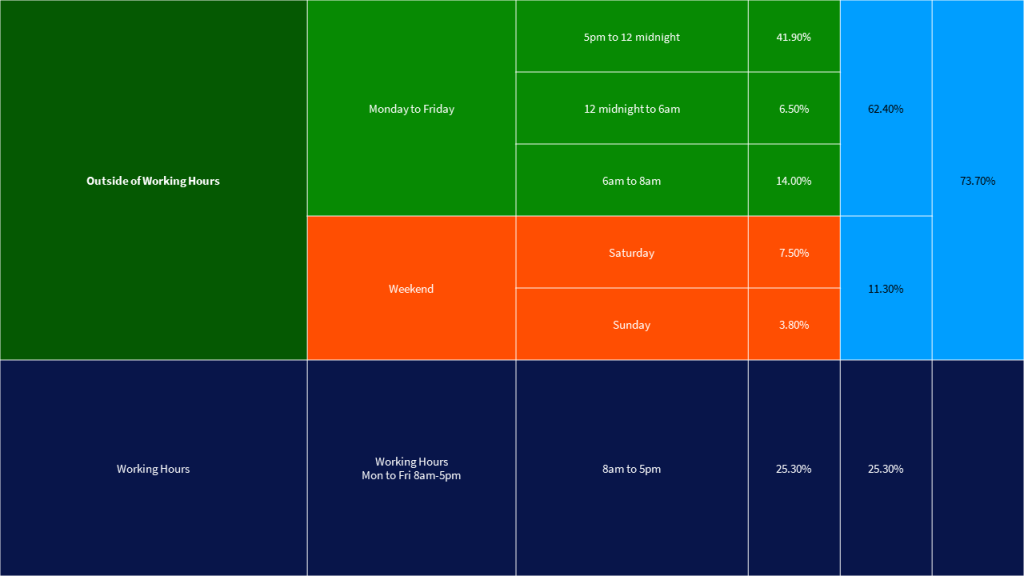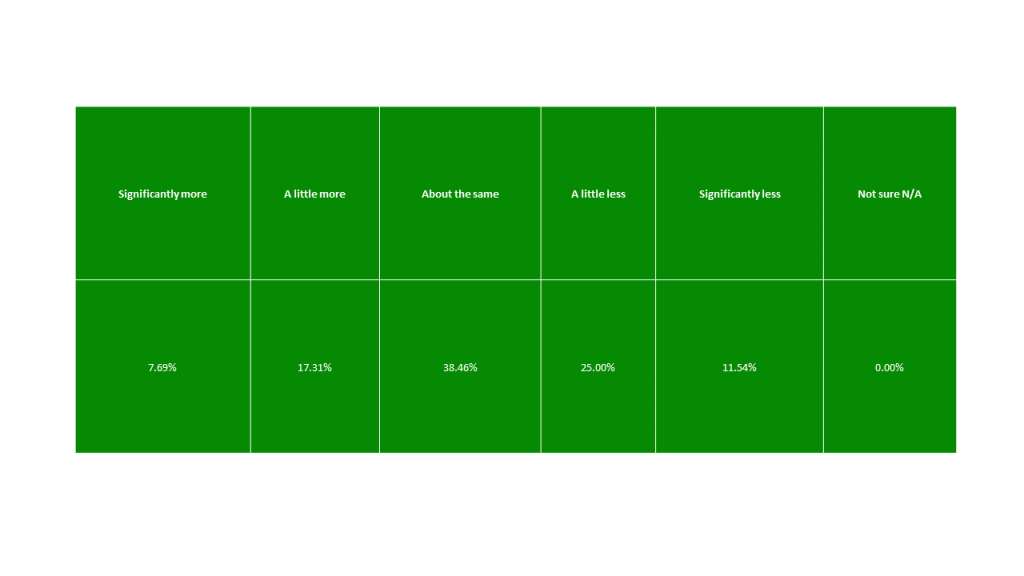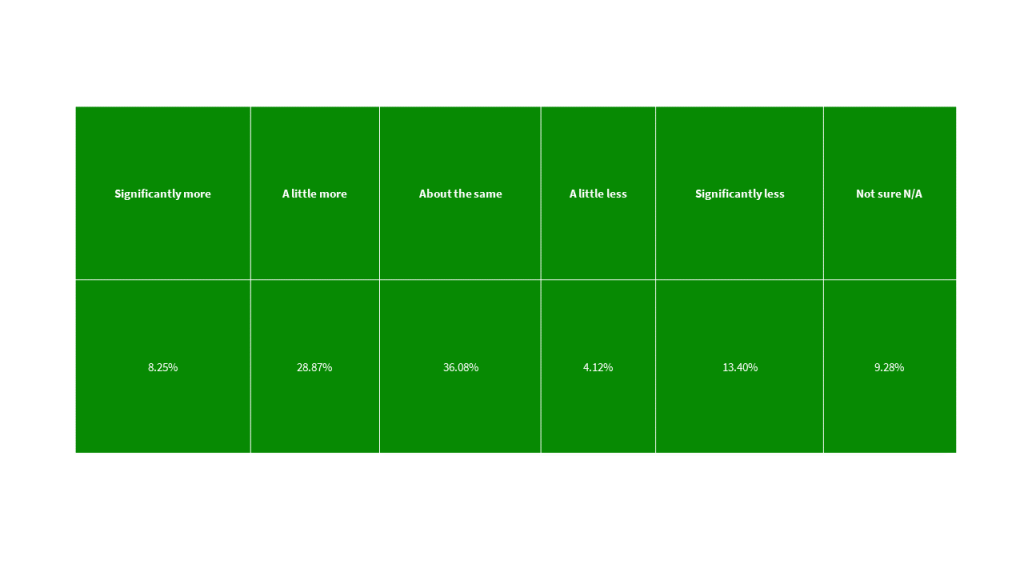Australian prescribers have tasted digital convenience and are unlikely to return to their pre-pandemic levels of face-to-face engagement with pharmaceutical representatives.
That’s according to an in-depth report published by ADG in 2021 and a follow-up pulse survey among Australian Doctor readers conducted in January 2022[i]. The report titled How a GP initiated engagement model could be the way forward for the pharmaceutical industry concluded that there will always be a role for pharmaceutical representatives. But this will be part of a new hybrid models enabled by digital innovation.
The vast majority of respondents to the pulse survey stated they prefer to read up about new treatments outside of normal working hours. For one thing, this doesn’t interfere with patient care. For another, it doesn’t eat into billable hours.
Preference for on-demand engagement outside of patient hours is already here
The survey results support our real-world experience of GP behaviour, with 62% of engagement with pharma content via Access.PLUS taking place outside of the traditional working day.
This trend reached a new high during a recent Access.PLUS campaign, with 74% of GPs engaging outside of traditional hours – 41.9% after work, 14% before work and 11.3% on weekends.

The fact is that doctors value informative promotional material from pharmaceutical companies, but they want to engage with it on-demand, as offered by ADG’s Access.PLUS.
They may also want to follow up with a conversation with a pharma sales rep or MSL, which they can book via ADG’s new Rep Connect platform available to the over 50,000 doctors who use AusDoc.
In the words of a GP: “The traditional way of representatives rocking up to the practice without an appointment and just sitting there with no one talking to them is not helpful. Most of us just don’t have time during a busy day. It is probably better to do things online.”
The GP went on to suggest that she would value a facility, where she could read information about medications and request further information or contact with a pharmaceutical representative as and when she needed it.
“That would save time for both parties,” she said.
No going back
Another finding of the January pulse survey is that 36% of GPs plan to see pharmaceutical representatives less often in 2022 than before the pandemic.[ii]
Here are two telling examples from the survey.
Question: Thinking about next year (2022), do you think you will see pharma sales representatives more or less than before COVID-19 occurred?
Answers:

This is not all bad news. The survey highlights that as many as 37% of GPs would actually engage with pharma sales reps more often if they had access to on-call virtual solutions.iii
Question: If the pharma industry moved to a GP-initiated engagement model whereby reps were available for you to contact by either virtual channels or in person only when you want, would you be more likely to see them?
Answers:

What hasn’t changed is that pharmaceutical company information remains as crucial as ever for GPs. What’s changed is how they get it. According to an ADG-Medicines Australia survey conducted in May 2020, these are the top three reasons for seeing a sales representative:
- Keeping up to date about new products
- Obtaining samples
- Getting an answer to a question about a treatment or product
Why a hybrid GTM model can be the most cost-effective strategy
Access.PLUS offers all the functionality listed by GPs, but at a significantly lower cost per contact than a field force.
“Like-for-like GP engagement via Access.PLUS costs 75% less than a sales rep and gives brands an opportunity to increase both share of voice and script uplift,” says ADG Managing Director Bryn McGeever.
In a recent campaign, Access.PLUS, when combined with a brand’s existing sales force, was able to increase the brand’s Share of Voice (SOV) by +52% in a highly competitive market.
About Access.PLUS
ADG’s Access.PLUS was launched in 2018 with the vision of offering Doctors the 24/7 opportunity to self-detail and engage with highly valuable pharmaceutical promotional and educational content via hosted eDetails. This empowers doctors to continue to engage and self-educate but on their own terms, at a time and place that suits them.
They can subsequently opt-in for more information, request samples, sign up for virtual events or join client-owned platforms. These kinds of tools have already been adopted in markets like Japan where the majority of the HCP community have transferred to online engagement and service support.
Proven Access.PLUS functionality
More than 15 pharmaceutical companies and Australian healthcare organisations have already benefited from the Access.PLUS functionality, which includes:
eDetailing: Nationwide opt-in self-detailing at less cost than face-to-face.
Lead generation: Event signups, website registration, rep bookings or sample requests
Client dashboard: The ability to track and optimise campaigns using real-time insights
Live chat: Text chat, video detailing and ability to schedule MSL calls.
Prescription behaviour tracking: Dynamic cohort tracking and script writing behaviour change vs. nationwide (Nostra).
No geographical access limitations: Access.PLUS mirrors the ADG database, enabling engagement with prescribers across metropolitan and rural Australia.
Approved messaging and communication only: Clients have the ability to supply approved messaging.
Always on and always adjustable: Prescribers can engage with content as and when it suits them, and clients can test, learn and adjust their content based on real-time data.
[i] Have your say: Information sources for GPs in the new COVID world. n = 105 (January 2022)
[ii] Have your say: Information sources for GPs in the new COVID world. (January 2022). Q11. n = 52
[ii] Have your say: Information sources for GPs in the new COVID world. (January 2022). Q13. n = 97
